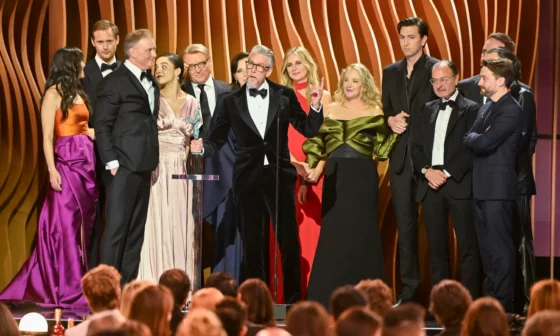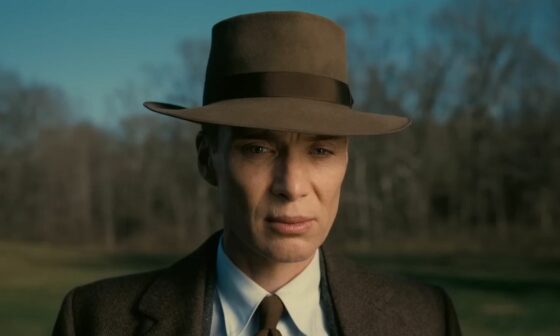
If Suspiria is the latest entry into this newfangled mini-genre known as “art-horror” or sometimes “elevated horror”, then we have a long road ahead of us. Not because this film is bad, but because watching this, it’s easy to already feel the tiredness creeping in towards this new mini-genre.
Of course, this is just a fancy way of saying “smart horror”, which is incredibly patronising – and completely false – since it implies that only certain horror films are smart and actually have something to say; the rest are apparently worthless.
That couldn’t be further from the truth, but with films in recent years such as Get Out, Hereditary, and A Quiet Place hitting the scene, there’s certainly been this audience shift in separating horror films; those deemed “higher” than others get labelled as art, while those deemed unfit are relegated to the level of everything else.
Suspiria, although an engaging, thoroughly entertaining film, already feels like the apotheosis of “art-horror” – in a bad way. It’s everything a fan of this kind of “intellectual” horror would want; a political backdrop, an interesting visual palette, unusual editing, and abject craziness. But this is a film that is actually less than the sum of its parts.
All these aspects are good, but together they feel hollow. Despite critics mentioning themes like motherhood and power, it feels like the film has these ideas floating around but never actually acts upon them.
Saying it has a motherhood theme feels especially egregious since there’s barely anything motherhood-related here, and it feels like critics have just assumed that a film that involves a lot of female characters must surely have something to do with motherhood.
Matriarchies and guilt are also hinted at, but in the sort of way that seems smart for bringing them up, without actually developing any of the ideas. The only theme that is partially interesting is setting the film in 1970s Berlin in the wake of Vergangenheitsbewältigung, a post-war period of Germany reflecting on their sins of World War II and the Holocaust.
It opens up interesting ideas about people having learnt little from such a horrific time, as the women running the dance studio are still shown to be abusing their power and also hunting for a “pure” specimen to sacrifice. But even this theme feels a little forced considering this is, by and large, a supernatural horror film with a lot of blood and, frankly, a lot of ridiculousness.
It is at times a confusing mix of arthouse, dark comedy, expressionism, French New Extremity, and more. It feels like director Luca Guadagnino (in a giant tonal shift from last year’s Call Me By Your Name) wanted to cram as much in as possible in favour of something a little more focused.
Again, it’s worth noting that Suspiria is not a failure, and is not a bad film. But there is a distinct feeling of an opportunity missed because the film isn’t able to come together and become something definitive.
The vast differences from the original are appreciated, and more remakes should be like this; the pure artistic vision of the filmmaker. It’s the complete opposite of Dario Argento‘s giallo tone of the original film, and has a larger focus on movement and bodies. It’s sexualised, it’s uncomfortable, and above all, it’s really weird.
The final act devolves into something mostly unseen in mainstream multiplexes, and it will be interesting to gauge the critical reaction from the masses.
It is a hard film not to be consumed by, which is a compliment, but it’s the salty aftertaste that sticks around. The kind of “so what?” feeling. Because this isn’t really a scary film, and it’s clearly trying to say something, but its ideas don’t quite coalesce into a satisfying whole.
It’s that intent to be highbrow that perhaps dooms Suspiria; by aiming to be this new arty horror it sets the bar too high. It feels like a film consciously trying to be considered a part of this new “elite tier”. I doubt Jordan Peele was thinking about that imaginary tier when he was making Get Out, and who knows, maybe Guadagnino wasn’t either.
But even though Suspiria arguably succeeds in what it’s trying to be, it’s perhaps not wise to wish for many imitations of it. A good horror film is a good horror film, and purposely aiming to be something more is likely a recipe for disaster. Suspiria is not a failure because it is in the hands of a talented director, but the next set of “art-horror” films may not be.
Suspiria is in cinemas now.
#Peace.Love.Suspiria








